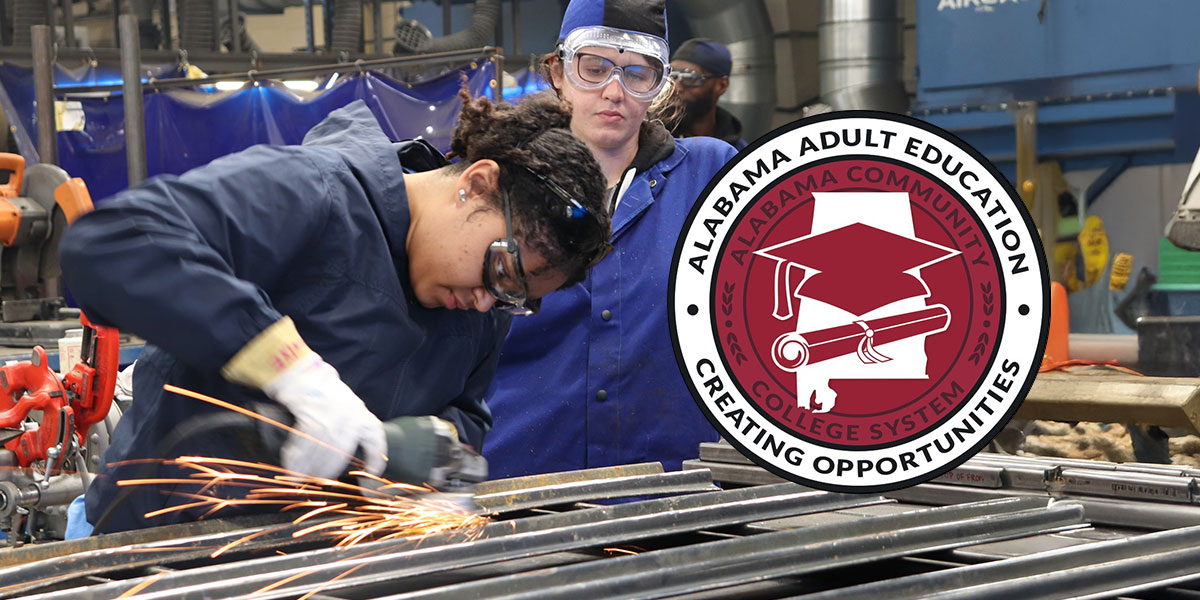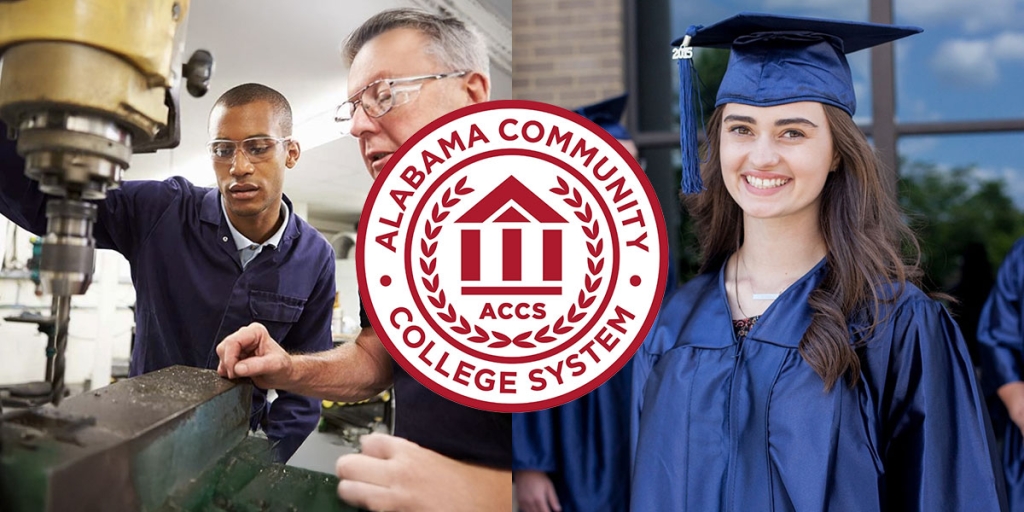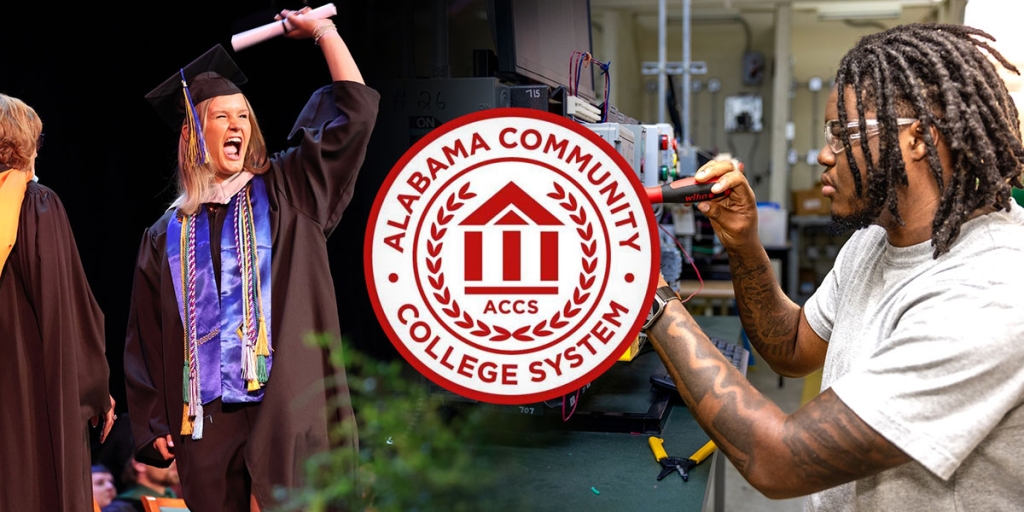February marks Career and Technical Education (CTE) Month, a time to recognize the impact of CTE programs in preparing students for in-demand careers. With a focus on real-world skills and economic growth, CTE provides a crucial pathway for students to gain hands-on experience and industry certifications while supporting a strong future workforce.
The Alabama Community College System (ACCS) plays a vital role in providing exceptional CTE training through its network of 24 community and technical colleges across the state and the ACCS Innovation Center. Offering a wide range of programs, from healthcare and manufacturing to information technology and skilled trades, the ACCS ensures students have access to high-quality education that aligns with industry needs. By partnering with local businesses and utilizing state-of-the-art equipment, ACCS helps bridge the gap between education and employment, fostering economic development and career success
What is Career and Technical Education?
Career and Technical Education ensures learners of all backgrounds have an opportunity to discover a career path they are passionate about, gain the necessary training, and achieve economic success. Thousands of jobs are available across Alabama that require more than a high school diploma but less than a four-year degree. The Alabama Community College System provides short-term and long-term training to earn the credentials you need to enter your career of choice, and offers a wide array of education and training programs that result in several levels of credentials.
“The goal of career and technical education is to ensure two things: one, that the workforce thrives, and two, that economic development is in place,” said Natalie English, ACCS Executive Director of Career and Technical Education. “Because, of course, the more people you have working and the better earnings they have, the more they’re able to contribute to the communities in which they live.”
CTE is designed to bridge the gap between education and the workforce by providing hands-on training, industry-recognized credentials, and academic knowledge. It allows students to explore careers early, determine their passions, and develop critical skills that can be applied in real-world settings.
“One of the biggest benefits students gain, particularly when they begin to engage in career and technical education early in life, is that a lot of our courses also have labs,” said English. “Not only are they learning theory, they’re also learning how to apply that theory. Even if a student does not stay in technical education, it gives them a better view from a work perspective.”
Federal Support for CTE
CTE has long benefited from federal funding, primarily through legislation known as Perkins – most recently the Strengthening Career and Technical Education for the 21st Century Act (Perkins V). Perkins funding supports CTE programs nationwide, ensuring that students receive high-quality education that aligns with workforce needs.
Perkins V was signed into law by President Trump on July 31, 2018; this bipartisan measure reauthorized the Carl D. Perkins Career and Technical Education Act of 2006 (Perkins IV), continued Congress’ commitment in providing nearly $1.4 billion annually for career and technical education (CTE) programs for our nation’s youth and adults.
The legislation represents an important initiative to expand opportunities for every student to explore, choose, and follow career and technical education programs to earn credentials for their future careers.
In the 2023-2024 fiscal year, Alabama received $24,467,077 in Perkins funding. Of this amount, over $6.1 million was allocated to the Alabama Community College System (ACCS) to enhance CTE programs across the state.
Why CTE Matters
CTE provides multiple pathways to success – whether students are entering the workforce directly, pursuing further education, or transitioning careers. Beyond the financial benefits, CTE fosters problem-solving, critical thinking, and technical expertise in fields like healthcare, information technology, skilled trades, manufacturing, and more. It also plays a significant role in the evolving STEM landscape.
“When people started talking about STEM and STEAM, they began to look at what is involved in a lot of these programs that are considered career and technical education,” said English. “If you have someone majoring in industrial maintenance, they are going into a manufacturing facility, making sure that the production line runs. That is very scientific with them being able to first diagnose the problem, so you have to have critical thinking skills, and then troubleshooting so that the problem can be diagnosed, and then actually being able to fix it.”
The Future of CTE in Alabama
As Alabama continues to invest in these fields through programs at ACCS institutions, students will have greater access to career training that leads to stable, well-paying jobs.
“As we see CTE growing, I think manufacturing, construction-related fields, logistics, and healthcare will continue to be in high demand,” English said. “We have a healthcare crisis, particularly in rural areas where hospitals and nursing homes are closing. Apprenticeships and workforce development programs are critical in addressing these shortages.”
By recognizing CTE Month, we celebrate the educators, students, and industry leaders who are shaping the future of our workforce. Whether through hands-on apprenticeships, dual-enrollment programs, or cutting-edge career training, CTE remains a powerful tool for economic and personal success.
To learn more about technical and career training through the Alabama Community College System, visit the Technical Training page, which offers information on types of credentials you can gain with the ACCS.










